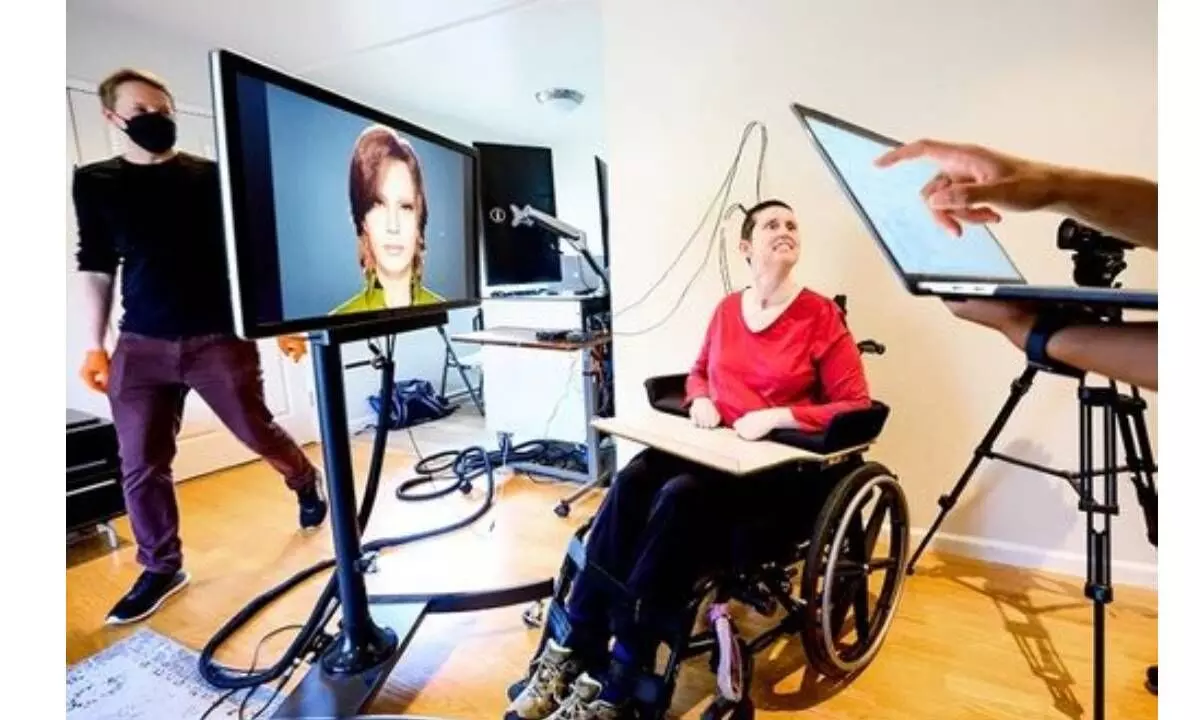Speech-aiding brain implant allows paralysed patients to talk
It consists of baby-aspirin sized sensors -- square arrays of tiny silicon electrodes - that are implanted in patients’ cerebral cortex, the brain’s outermost layer
image for illustrative purpose

New York US researchers have in a breakthrough developed a brain implant system, which when powered by artificial intelligence (AI) helps paralysed patients with speech difficulties communicate via a computer screen.
The speech-aiding brain implant by Stanford University consists of baby-aspirin sized sensors -- square arrays of tiny silicon electrodes -- that are implanted in patients’ cerebral cortex, the brain’s outermost layer.
Each array contains 64 electrodes, arranged in 8-by-8 grids and spaced apart from one another by a distance of about half the thickness of a credit card. The electrodes penetrate the cerebral cortex to a depth roughly equaling that of two stacked quarters.
The implanted arrays are attached to fine gold wires that exit through pedestals screwed to the skull, which are then hooked up by cable to a computer.
The devices transmit signals from a couple of speech-related regions in patients' brains to state-of-the-art software that decodes their brain activity and converts it to text displayed on a computer screen.
Pat Bennett, now 68, is a former human resources director and onetime equestrian who jogged daily. In 2012, she was diagnosed with amyotrophic lateral sclerosis, a progressive neurodegenerative disease that attacks neurons controlling movement, causing physical weakness and eventual paralysis.
“When you think of ALS, you think of arm and leg impact,” Bennett wrote in an interview conducted by email. “But in a group of ALS patients, it begins with speech difficulties.

